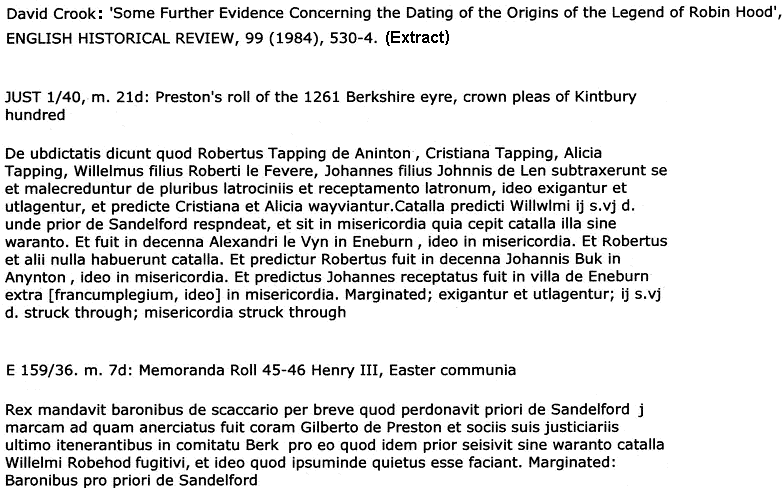William Robehod
David Crook discusses these Latin references in his article. William the son of Robert le Fevere from Enborne in Berkshire is indicted for various larcenies and the harbouring of thieves. He takes to flight, is outlawed, and his chattels are taken without warrant by the prior of Sandleford. The prior is pardoned by the king for this act and in the receipt for this writ, the fugitive is referred to as William Robehod. Crook felt that the apparent change of the surname from William son of Robert le Fevere, in one reference, to William Robehod in the second, meant that Robin Hood was already a well-known name for a fugitive criminal. The old French words forgeron, faverges, or favarges, mean a ‘forge’, hence blacksmith. Lefevre appears to be originally a French occupational surname meaning ‘smith’ (pronounced ‘le fur’), thus the name Robert le Fevere, according to general consent, suggests his occupation, a blacksmith. Stephen Knight (Robin Hood, A Complete Study of the English Outlaw, 1994, p. 25) thought that ‘William Robehod is just a miswritten or misunderstood version of name and patronymic – William Robert would be a common way of recording this man’s name at the time. The record is certainly a slender basis on which to assume the outlaw, definitely known by the 1370s, was already notorious over a century before’.

|
